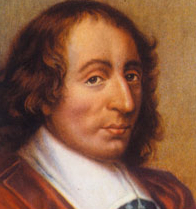Cards In This Set
| Front | Back |
|
Pressure
|
Is a measure of force per unit area. It is usually more convenient to use pressure rather than force to describe the influences upon fluid behavior.
|
|
Pressure Formula
|
 Pressure = Force / Area; Force should be measured in newtons (N) and area should in measured in squared meters (m2) |
|
Pascal (Pa)
|
Is the resulting unit, newtons per square meter is the metric unit or pressure.
|
 Blaise Pascal (1623-1662) - |
Born in 1623 in Clermont, France, Blaise Pascal is one of the most well known mathematicians of all times.
|
|
Kilopascals (kPa)
|
Pressures are very often the unit used in measurements. 1 kPa is equal 1 000 Pa.
|
|
Fluid
|
Is a substance that assume the shape of it's container. A substance that has no fixed shape and yields easily to external pressure; a gas or (especially) a liquid.
|
|
Bar
|
One bar is the force of 100 000 Pa or 1.0 x105 N/m2.
|
 Millibar (mb) |
1 mb is equal 0.001 bar = 100 Pa.
|
 Atmospheric Air Pressure |
Is often given in millibars where standard sea level pressure is defined as 1013 mbar, 101.3 (kPa), or 1.01325 bar.
|
 Pascal's Principle |
Is a change in pressure at any point in a fluid is transmitted equally and unchanged in all directions through the fluid.
|
|
Atmospheric Acoustics
|
Is the science of sound waves in the open air.
|
|
Hydraulic System
|
 Is a device that uses or is operated by a liquid moving in a confined space under pressure. |
 Hydraulic Lift System |
Is a type of machine that uses a hydraulic apparatus to lift or move objects using the force created when pressure is exerted on liquid in a piston. Force then produces "lift" and "work."
|
 Daniel Bernoulli (1700 - 1782) - |
He is most prominent for his applications of mathematics to mechanics, particularly fluid mechanics, and for his exceptional work in probability and statistics.
|
 Bernoulli's Principle |
States that for an inviscid flow of a nonconducting fluid, an increase in the speed of the fluid occurs simultaneously with a decrease in pressure or a decrease in the fluid's potential energy.
|



